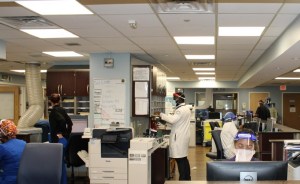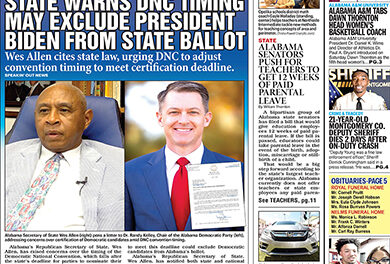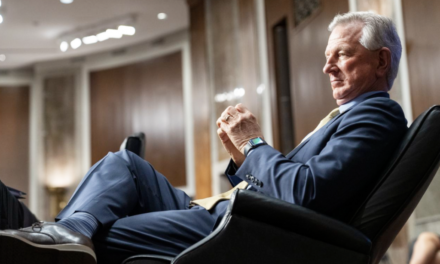
Like other healthcare facilities in the region, the Emergency Department at Howard University Hospital has seen dozens of Covid-19 patients and deaths
By India Bookhart, Howard University News Service
WASHINGTON — It was impossible to see the emotions on Mulu Hailgiorgs face through her blue and white surgical mask, but the intensity came through in her voice.
“I will never forget one case,” said Hailgiorgs, an emergency medicine nurse at Howard University Hospital as she reflected on the hundreds of Covid-19 patients she has seen.
A woman in her 60s came into the Emergency Department from an area nursing home in April 2020, a time when hundreds of nursing home residents were dying monthly in the region and across the country from Covid-19.
“She was very tired and weak,” Hailgiorgs said.
The hospital was filled to capacity, she said. Hailgiorgs found herself being the only nurse in the patient isolation room.
“I was trying to get someone to come and help, and no one was there,” she said.
The woman was breathing was shallow, so a doctor decided immediately to put the 60-year-old woman on a respirator to help her breathe.
“The person was dying, so I had to save her,” Hailgiorgs said.
Hot from her Personal Protective Equipment and with no proper room to care for her patient, Hailgiorgs worked inside the patient’s isolation bubble for over two and a half hours. Finally, the woman began to stabilize, Hailgiorgs said.
Hailgiorgs left the hospital that night with a sense of accomplishment.

Dana Lee-Hines (right) works as an adult nurse practitioner at Eventus Wholehealth, a nursing home in a Greensboro, North Carolina.
“Then the next day I came, I heard that she died” Hailgiorgs said, with devastation in her voice. “Even though you do a lot of things, you can still lose the patient.”
With the latest surge of coronavirus, already physically and mentally exhausted doctors, nurses and other health care technicians on the frontline of the pandemic in Washington, Baltimore, and throughout Virginia are feeling new pressure in the recent surge and telling similar stories.
Breyona Vanall, an X-ray technician in Norfolk, Virginia, said the cases just keep coming and coming, and with them come difficult experiences.
“I’m seeing babies as young as three months in the emergency room with COVID symptoms,” Vanall said, “and it’s hard to watch a baby struggle to breathe,”
From the beginning, funeral home directors were on the frontline as the number of deaths mounted exponentially.
Kenyatta Clinton, a mortician at Brooks Clinton in Baltimore, said the pace has been overwhelming.
“I was going from services in the morning, to doing arrangements, to embalming,” Clinton said. “There was no rest. I was physically and mentally drained.”
During the height of the pandemic, Clinton said, he found himself having services back-to-back, sometimes two services in one day.
On top of handling COVID cases, there were also natural deaths, suicides, and murders cases he had to handle. Consequently, Clinton families had to push their loved ones’ funerals back.
Dana Lee-Hines works as an adult nurse practitioner Eventus Wholehealth, a nursing home in a Greensboro, North Carolina, where workers, like those in other nursing homes, have seen more than their share of death and suffering from the pandemic.

Dana Lee-Hines works as an adult nurse practitioner Eventus Wholehealth, a nursing home in a Greensboro, North Carolina.
In December 2020 alone, Hines said, her facility lost 22 residents. She described the losses as personal and heartbreaking.
“When health continues to decline, you feel a sense of helplessness for the patient you’re caring for,” she said. “You feel you’re doing everything that you know to do, and you just feel a sense of loss and sadness,”
If dealing with a deadly virus at work wasn’t enough, healthcare workers are worried they may get sick, she said.
“Young healthcare workers are concerned for their health, and they’re leaving,” she said
Dede Jackson, a mother of five and a medical assistant in the Department of Family Medicine at Howard University Hospital, said she lived in fear of infecting her family.
Jackson said she found herself “leaving shoes outside the door and taking off things because I didn’t want to infect my family.”

Dr. Howard Wilson
She said her medical office, like those in other hospitals throughout D.C. Maryland and Virginia, were overrun with COVID patients.
“There’s always a fear of catching COVID in the back of my mind, but I can’t display it,” she said.
Jackson works in the office of Dr. Howard Wilson, a family medicine practitioner. Wilson said his overriding feeling is frustration.
“It’s frustrating for me as a doctor to have patients not consider the reasonable medical advice we have given in good faith, as compared to internet rumors, information from politicians and people who don’t have the medical background to properly inform,” Wilson said.
Help us Continue to tell OUR Story and join the AFRO family as a member – subscribers are now members! Join here!
The post Frontline pandemic workers exhausted, saddened, frustrated and in fear as so many Americans remain unvaccinated appeared first on AFRO American Newspapers .











